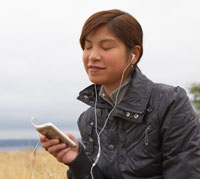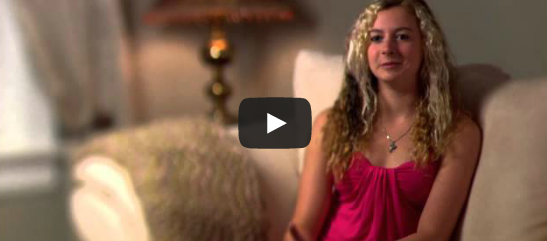Section navigation
Protecting your ears

Experts are asking young people to listen up! Loud noises can seriously damage your hearing. That’s because the sheer force of the sound vibrations may damage tiny cells inside your ear. And once they’re damaged, that’s it — they can’t be fixed.
The effects of noise add up over a lifetime, which is why it’s smart to start caring for your hearing when you’re young.
The distance between you and the sounds matters, too, which is why earbuds from personal music players can be a problem — especially if you crank up the volume.
How loud is too loud? Consider these points:
- Normal conversation is 60 decibels (the unit used to measure sound).
- People who listen to 85 decibels or higher for a long period of time are at risk for hearing loss.
- A portable music player like an iPod at full volume can be over 100 decibels. That's more than 100 times more powerful than conversation! Your hearing can be damaged even after a few minutes of listening at full volume.
- Some researchers say it’s fairly safe to listen to an iPod for around an hour a day — if the volume is at 80 percent of maximum.
Hear here
Of course, not all loud sounds are from personal music players. It’s a good idea to limit going to loud concerts (or at least wear earplugs), for example. And ear protection is a good idea if you’re running a power mower (that’s 90 decibels) or other loud equipment.
Want some more clues as to when your ears are taking a hit? Signs include:
- If you have to shout to be heard above the noise
- If you can’t understand what someone less than 2 feet away is saying
- If someone standing near you can hear the music from your headset
- If you have a ringing sound in your ears after hearing loud sounds
Watch a teen talk about her life with hearing loss.
Content last reviewed April 15, 2014
Page last updated May 28, 2014








